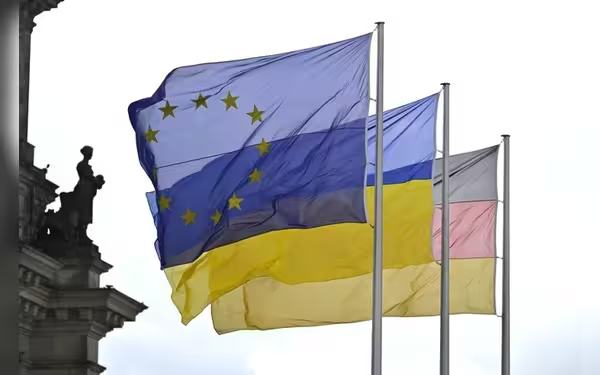Tuesday, July 2, 2024 03:29 PM
EU Imposes Stricter Sanctions on Belarus and Russia
- EU aligns Belarus sanctions with Russia to prevent evasion
- Focus on closing trade loopholes to pressure Belarus, Russia
- Efforts to tighten sanctions face delays over fertilizer exports
 Image Credits: arabnewspk
Image Credits: arabnewspkThe European Union strengthens sanctions on Belarus to align with measures against Russia, aiming to close trade loopholes and increase pressure on both countries in response to the conflict in Ukraine.
The European Union member states have recently agreed to impose additional sanctions on Belarus in response to the ongoing conflict in Ukraine. These new measures align more closely with the sanctions targeting Russia and aim to prevent the evasion of penalties while strengthening the EU's response to Russia's invasion of Ukraine.
The EU has been focusing on Belarusian President Alexander Lukashenko's government, a key ally of Russia, for allowing Belarus to be used as a base for Russia's military actions in Ukraine. The goal is to bring Belarusian sanctions in line with those imposed on Russia to prevent the illegal transfer of goods, such as microchips, that could support the conflict in Ukraine.
Belarus has been identified as a potential gateway for banned EU products to reach Russia by first exporting them to Belarus. The new sanctions are designed to close this loophole and increase pressure on both Belarus and Russia, thereby enhancing the effectiveness of the sanctions against Russia.
Efforts to strengthen sanctions on Belarus faced delays due to disagreements over relaxing restrictions on Belarusian fertilizer exports. While some EU countries advocated for allowing fertilizer exports to address food supply issues in developing nations, Lithuania opposed this move, expressing concerns about revenue benefiting Belarusian authorities.
No exemptions have been granted for fertilizer exports, and the focus remains on tightening measures against Belarus and Russia. Prior to Russia's invasion of Ukraine in 2022, the EU had already imposed multiple rounds of sanctions on Lukashenko's government for its crackdown on protests.
Overall, the EU has implemented 14 sets of sanctions against Russia in response to its actions in Ukraine, showcasing a firm stance against the conflict.
The EU's decision to impose additional sanctions on Belarus underscores its commitment to addressing the Ukraine conflict and holding accountable those who support Russia's actions. By aligning sanctions with Russia and closing loopholes in trade routes, the EU aims to exert greater pressure on both Belarus and Russia, signaling a unified stance against aggression and violations of international norms.













